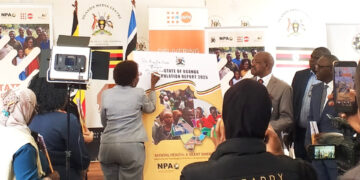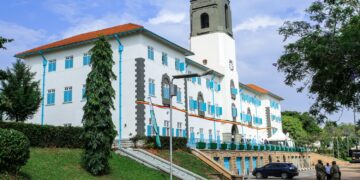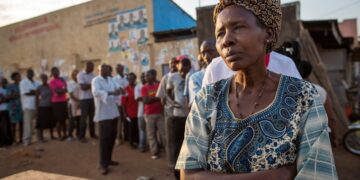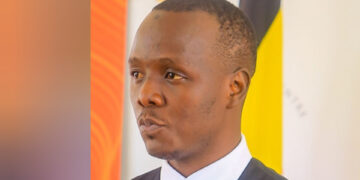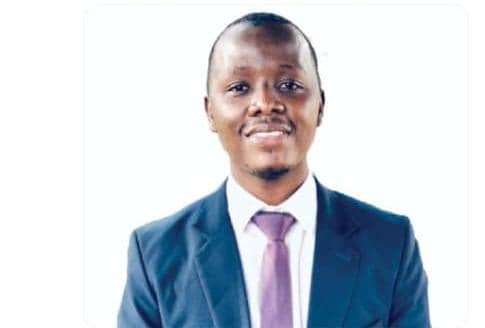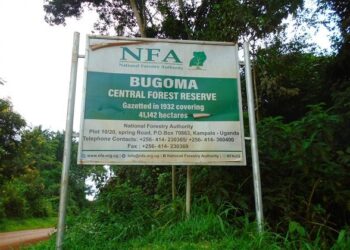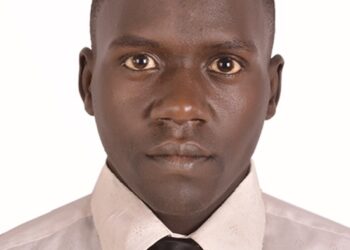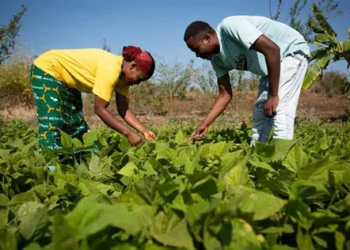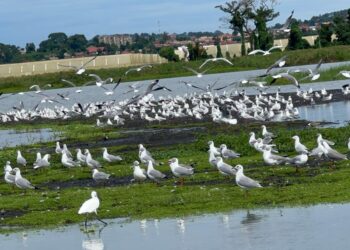OPINION
Earlier this week, Kampala received uplifting news from the Kampala Capital City Authority (KCCA) about the redevelopment of the Nakivubo Drainage Channel. The project, which is being undertaken by Ham Enterprises Limited, led by businessman Dr. Hamis Kiggundu, is set to change the face of downtown Kampala.
This announcement comes as a relief to thousands of city residents and traders who have for years lived with the consequences of a neglected drainage system. The open Nakivubo drainage channel had become a nightmare breeding insecurity, spreading disease, and exposing businesses and households to the constant threat of flooding.
For ordinary traders in Owino Market, shop owners along Nakivubo Road, and pedestrians who pass through the central business district daily, the channel has been both a hazard and a burden. It was not just a drainage system, it became a hideout for criminals, who used its dark corners to stage robberies and other criminal activities. For many women traders, walking past it in the evening meant risking harassment or worse.
On top of the insecurity, the channel had turned into a dumping ground. Plastics, garbage, dead animals, and even human waste found their way into the open trench. This created a foul smell, made the area unhygienic, and led to regular blockages. Every heavy downpour became a source of anxiety. Traders would scramble to save their goods from being soaked in floodwaters, while commuters and taxi operators endured hours of traffic standstills caused by waterlogging.
The effects were not just about inconvenience. Floods in Kampala have caused deaths, destroyed property, and disrupted livelihoods. For a long time, city dwellers felt helpless, wondering when a lasting solution would be found.
The most remarkable aspect of this redevelopment is that it will be fully funded by Dr. Hamis Kiggundu himself. Unlike many projects that rely on taxpayer money, this one will not strain government resources. Instead, the funds initially planned for Nakivubo’s drainage upgrade can now be redirected to other pressing needs such as schools, health centres, or rural infrastructure.
This speaks volumes about local investment and patriotism. Dr. Ham is not just a businessman; he is a Ugandan who understands the pain of his people. By taking up this responsibility, he is filling a gap that has for decades frustrated both residents and traders in downtown Kampala.
Of course, as a businessman, he has proposed a recovery model of covering the channel and building modern shops on top. This idea is not only sustainable but also innovative. It ensures the drainage is maintained and functional while creating more commercial space, jobs, and revenue for Ugandans.
The project also comes at a critical moment in Uganda’s history. Together with Kenya and Tanzania, Uganda won the bid to host the Africa Cup of Nations (AFCON) in 2027. Hosting AFCON is not just about football, it is about presenting the image of a modern, organised, and functional country to millions of visitors and viewers worldwide.
When Confederation of African Football (CAF) inspectors assessed Nakivubo Stadium, one of their key recommendations was that the open drainage channel nearby be urgently addressed. Without this upgrade, the stadium risked failing international approval standards. This means that the redevelopment of the Nakivubo drainage channel is not just a local necessity but it is a continental requirement if Uganda is to host AFCON successfully.
The urgency of this project is clear. Earlier this year, in March, Kampala experienced a heavy downpour that lasted over eight hours. Roads turned into rivers, businesses were submerged, transport came to a halt, and lives were lost. But remarkably, Nakivubo and the St. Balikuddembe area remained unaffected. Why? Because Dr. Ham had already taken measures to clean and maintain the drainage.
This incident demonstrated that with proper management, Kampala’s flooding problem can be solved. It gave a sign of what the city could look like if its drainage system is modernised and managed effectively.
Importantly, this is not a private venture happening in isolation. President Yoweri Kaguta Museveni himself wrote a letter approving the redevelopment of the Nakivubo Drainage Channel. In his communication, the President acknowledged the importance of the project and expressed confidence in Dr. Ham’s ability to deliver, citing the successful redevelopment of Nakivubo Stadium as proof of his capability.
For the President, this project is about more than construction, it is about transforming Kampala into a modern capital, ensuring the safety and dignity of its residents, and preparing the country for global events like AFCON. The President’s endorsement is also a message that government is open to working with credible private investors in addressing public challenges.
However, despite the clear benefits, resistance has emerged from some political leaders, notably Kampala Lord Mayor Erias Lukwago. Instead of embracing the opportunity to fix a long-standing problem, the Lord Mayor has opposed the project and this is his nature.
But after over two decades in leadership, residents of Kampala expect more than opposition and blame-shifting. They want solutions. Traders want to work without fearing floods. Mothers want to walk with their children without worrying about diseases caused by poor sanitation. Commuters want to move freely without losing hours in traffic caused by waterlogged roads.
Leadership should be about solving problems, not scoring political points. Kampala cannot afford to let political games deny citizens the chance for real progress.
KCCA’s move to partner with local investors like Ham Enterprises is a long overdue shift. For too long, the city has depended on government funds or foreign aid for basic infrastructure. But this public-private partnership model shows that Ugandans can and should play a central role in developing their own capital city.
If properly managed, the redevelopment of Nakivubo Drainage Channel will not only end the cycle of floods but also beautify downtown Kampala, create business opportunities, and restore dignity to a part of the city that has been neglected for decades.
For the trader in Owino, it means a chance to sell goods without fear of floods washing them away. For the commuter, it means saving time that would otherwise be wasted in traffic caused by blocked roads. For the youth, it means new jobs and new business spaces. For the nation, it means a stronger image as we prepare to host Africa’s biggest football tournament.
By the way, the redevelopment of the Nakivubo Drainage Channel is not just an engineering project, it is about people. It is about mothers who need safe streets, traders who need flood-free shops, children who need a clean environment, and a nation that wants to be proud of its capital.
It is time for leaders to put politics aside and put people first. Kampala deserves better. The future of our capital city depends on bold steps like this one.
By David Serumaga,
The Writer Works With Uganda Media Centre.















